Memory tricks to remember
Blanked on your new colleague’s name? Don’t know where you put your glasses? “Forgetting these types of things is a sign of how busy we are,” says Zaldy S. Tan, MD, director of the Memory Disorders Clinic at Beth Israel Deaconess Medical Center in Boston. “When we’re not paying good attention, the memories we form aren’t very robust, and we have a problem retrieving the information later.”
The key, says Harry Lorayne, author of Ageless Memory: Simple Secrets for Keeping Your Brain Young, is to get your brain in shape. “We exercise our bodies, but what good is that great body if you don’t have the mental capabilities to go with it?” he says.
Sure, you could write everything down, keep organized lists, and write notes on your cell phone. But when you don’t have access to those aids, or if you just want to strengthen your brain, try these expert-recommended strategies to help you remember.

Pay attention
When you’re introduced to someone, really listen to the person’s name. Then, to get a better grasp, picture the spelling. Ask, “Is that Kathy with a K or a C?” Make a remark about the name to help lock it in (“Oh, Carpenter—that was my childhood best friend’s last name”), and use the name a few times during the conversation and when you say goodbye. Here are some more tips that’ll ensure you never forget someone’s name again.

Visualize the name
For hard-to-remember monikers (Bentavegna, Wobbekind), make the name meaningful. For Bentavegna, maybe you think of a bent weather vane. Picture it. Then look at the person, choose an outstanding feature (bushy eyebrows, green eyes), and tie the name to the face. If Mr. Bentavegna has a big nose, picture a bent weather vane instead of his nose. The sillier the image, the better. Here are the best brain exercises that will improve your memory.

Create memorable associations
Picture Joe Everett standing atop Mount Everest. If you want to remember that Erin Curtis is the CEO of an architectural firm, imagine her curtsying in front of a large building, suggests Gini Graham Scott, PhD, author of 30 Days to a More Powerful Memory. Here are some common reasons you might be suddenly forgetting things.

Cheat a little
Supplement these tips with some more concrete actions. When you get a business card, after the meeting, jot down a few notes on the back of the card (“red glasses, lives in Springfield, went to my alma mater”) to help you out when you need a reminder. If you don’t get a business card, make a contact for the person on your phone and use the “Notes” section for additional details.
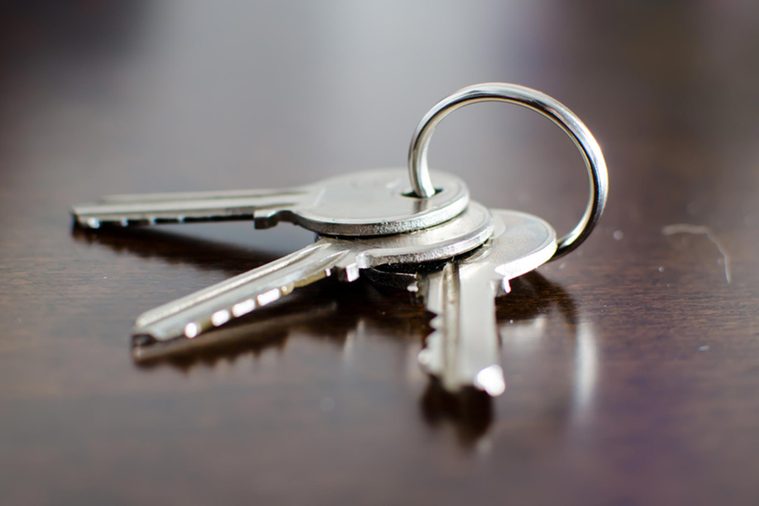
Give a play-by-play
Do you misplace objects more often than you’d like to admit? Pay attention to what you’re doing as you place your glasses on the end table. Remind yourself, “I’m putting my keys in my coat pocket,” so you have a clear memory of doing it, says Scott. Here’s how you can train to have superhuman memory.
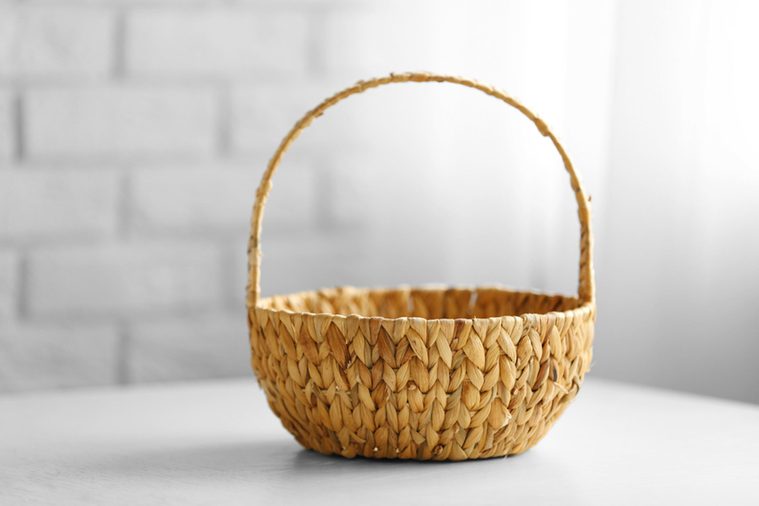
Make it a habit
Put a small basket on a side table. Train yourself to put your keys, glasses, cell phone, or any other object you frequently use (or misplace) in the basket—every time. These are the 5 types of memory everyone has and why they matter.
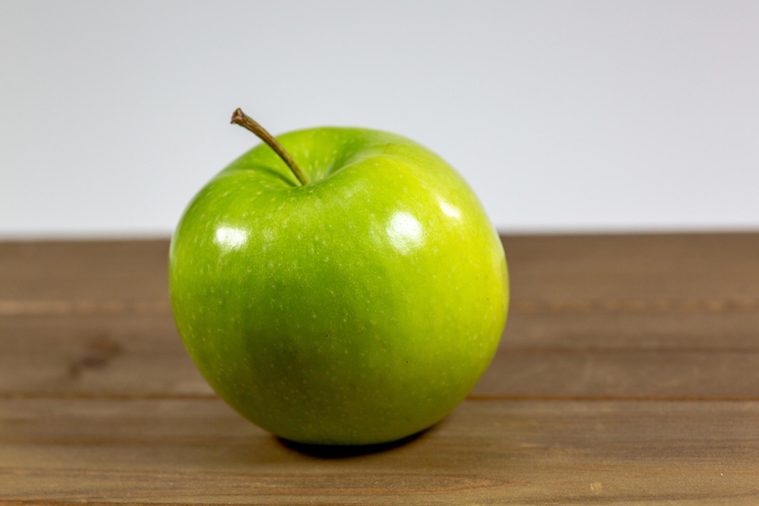
Start a ritual
To remind yourself of a chore (write a thank-you note, go to the dry cleaner), give yourself an unusual physical reminder. You expect to see your bills on your desk, so leaving them there won’t necessarily remind you to pay them. But place a shoe or a piece of fruit on the stack of bills, and later, when you spot the out-of-place object, you’ll remember to take care of them, says Carol Vorderman, author of Super Brain: 101 Easy Ways to a More Agile Mind. Adopt these habits that will help keep your brain sharp and healthy, even later in life.

Sing it
To remember a small group of items (a grocery list, phone number, list of names, to-do list), adapt it to the tune of a well-known song, says Vorderman. Try “peanut butter, milk, and eggs” to the tune of “Twinkle, Twinkle, Little Star,” “Happy Birthday,” or even nursery rhymes.
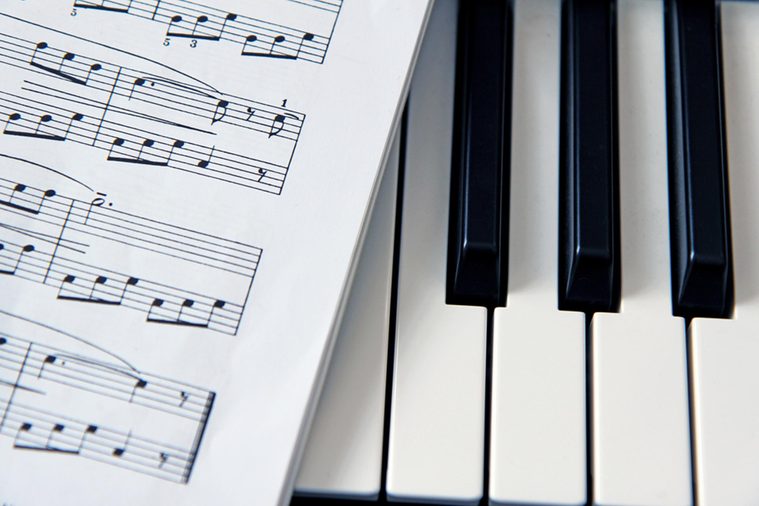
Try mnemonic devices
Many of us learned “ROY G BIV” to remember the colors of the rainbow, or “Every Good Boy Deserves Fudge” to learn musical notes. Make up your own device to memorize names (Suzanne’s kids are Adam, Patrick, and Elizabeth, or “APE”), lists (milk, eggs, tomatoes, and soda, or “METS”), and anything else you shouldn’t forget.

Use your body
When you have no pen or paper and are making a mental grocery or to-do list, remember it according to major body parts, says Scott. Start at your feet and work your way up. So if you have to buy glue, cat food, broccoli, chicken, grapes, and toothpaste, you might picture your foot stuck in glue, a cat on your knee looking for food, a stalk of broccoli sticking out of your pants pocket, a chicken pecking at your belly button, a bunch of grapes hanging from your chest, and a toothbrush in your mouth.

Go Roman
With the Roman room technique, you associate your grocery, to-do, or party-invite list with the rooms of your house or the layout of your office, garden, or route to work. Again, the zanier the association, the more likely you are to remember it, says Scott. Imagine apples hanging from the chandelier in your foyer, spilled cereal all over the living room couch, shampoo bubbles overflowing in the kitchen sink, and cheese on your bedspread.

Shape your numbers
Assign a shape to each number: 0 looks like a ball or ring; 1 is a pen; 2 is a swan; 3 looks like handcuffs; 4 is a sailboat; 5, a pregnant woman; 6, a pipe; 7, a boomerang; 8, a snowman; and 9, a tennis racket. To remember your ATM PIN (4298, say), imagine yourself on a sailboat (4), when a swan (2) tries to attack you. You hit it with a tennis racket (9), and it turns into a snowman (8). Try forgetting that image. Check out the medical reasons your short-term memory might be getting worse.

Rhyme it
Think of words that rhyme with the numbers 1 through 9 (knee for 3, wine for 9, etc.). Then create a story using the rhyming words: A nun (1) in heaven (7) banged her knee (3), and it became sore (4).
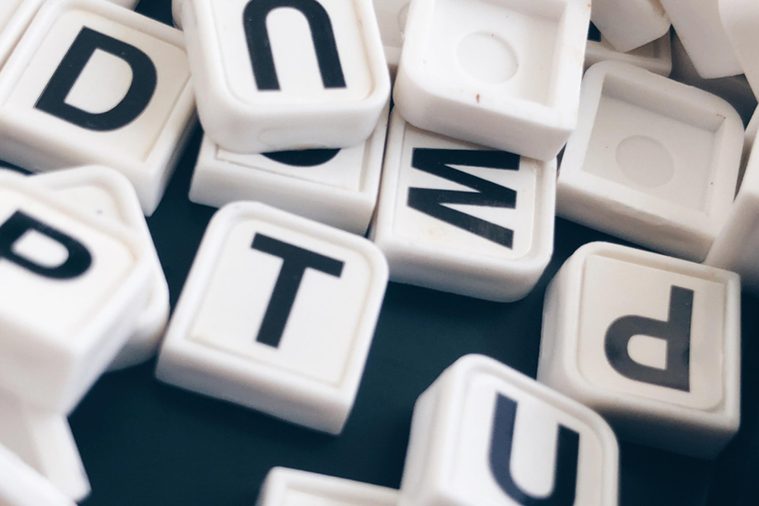
Practice your ABCs
Say you just can’t remember the name of that movie. Recite the alphabet (aloud or in your head). When you get to the letter R, it should trigger the name that’s escaping you: Ratatouille. This trick works when taking tests, too.

Read it, type it, say it, hear it
To memorize a speech, a toast, or test material, read your notes, then type them into the computer. Next, read them aloud and record them as a voice memo. Listen to the recording several times. As you work on memorizing, remember to turn off the TV, silence your music, and shut down your computer; you’ll retain more. Don’t miss these 15 exercises proven to keep your memory sharp.

Use color
Give your notes some color with bolded headings and bulleted sections (it’s easier to remember a red bullet than running text). A 2015 study published in the Journal of Education and Practice suggests the use of color can influence human memory performance. The researchers noted graduate students exposed to congruent colors (the word blue written in blue) and achromatic colors (white, grey, black) performed better than students exposed to incongruent colors.
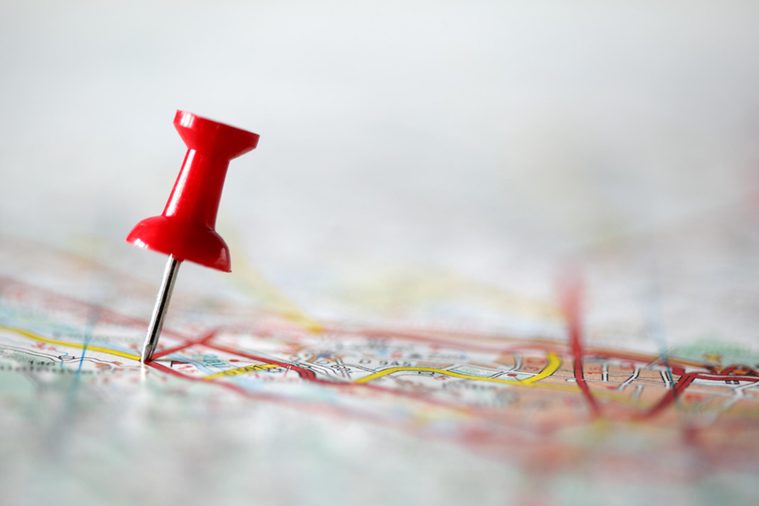
Make a map
Imagine an intersection and mentally place a word, fact, or number on each street corner. A study in the journal Applied Cognitive Psychology found people are more likely to remember routes, such as streets and landmarks, when they were associated with more vividness/distinctiveness. In other words, the more mental imagery associated with the street or landmark, the easier it became for people to recall. Next, learn about the everyday habits of people with impressive memories.
